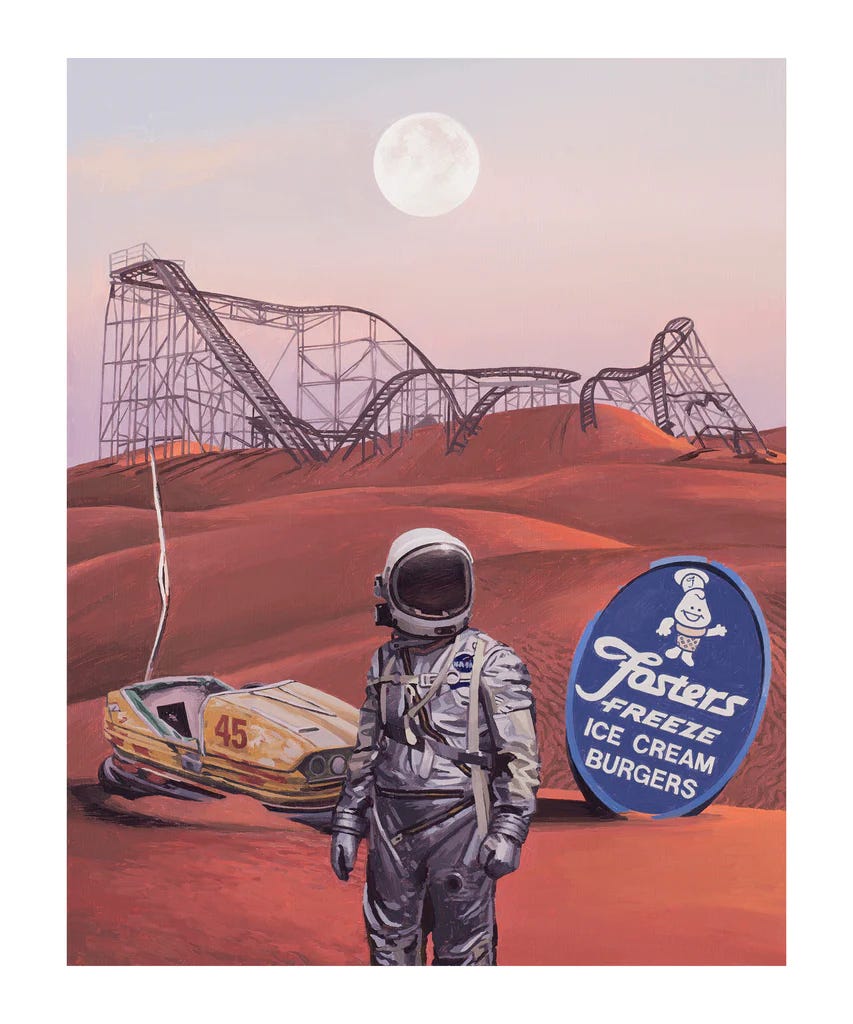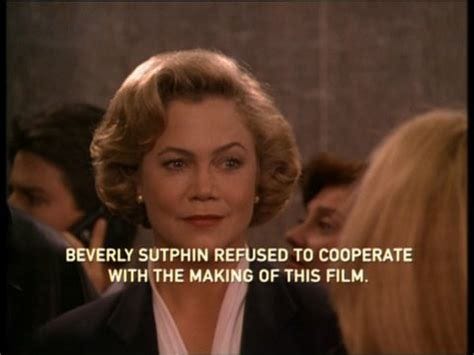Who Are You This Time?
Personalities, In-Effective Altruism, Hurricane Sandy, Serial Mom, and Strongmen
It’s been ten years since Superstorm Sandy shut down New Jersey and much of New York. Sarah and I weathered it out in a 6th floor apartment building, and we had a great view of the east Manhattan power station that gave a lightning show as the water short circuited its transformers. We never lost power. Our building had underground cables and was on a hospital grid. Others were not so lucky.

I managed to avoid the tense gas lines, and in the coming months, I volunteered for cleanup in Rockaway near Jacob Riis Park where the storm surge went clear across the peninsula. Shortly after this, Hurricane Irene would flood my parents’ house to the first floor. They were evacuated in a payloader, then by boat. They rebuilt, and last year Hurricane Ida flooded them again. My inlaws were flooded by the Amite River “hundred year flood” in Louisiana as well. I don’t live in a flood zone, but we get standing water due to bad drainage (thanks to the pool taking up most of the yard, and a badly designed concrete slab) so I’m fastidious about setting up an outdoor sump pump any time heavy rain threatens us. Ida dumped four inches in a few hours on us, and the water nearly reached the glass brick windows of the Lounge Pit.
I admire Scott Listfield’s surreal astronaut paintings. He evokes the feeling I get in the slow apocalypse; the ego refuses to die, so I imagine myself as a lone survivor in whatever hell humans visit upon this Earth, and his paintings capture that perfectly. Another artist whose work haunts me is Gregory Crewdson, whose photographs I first saw in a gallery. I was reintroduced to him by Joyce Carol Oates, who wrote the introduction to his art book Alone Street. I purchased the book and recently finished reading it; his photographs require an enormous crew with months of planning, more like a movie shoot, and he gives the crew time to talk in the book. Which is commendable. This post by JCO includes the intro, and many of the photographs:
There’s also a great interview with Joyce by Katy Waldman of the New Yorker, about the new, grueling movie adaptation of Blonde, her new novel Babysitter, and many other questions about what it means to be a writer, that I found very interesting.
There was another interesting piece in the New Yorker about how our personalities form and change over the years, directly on the heels of a frightening study that says the stress of the Coronavirus Epidemic has changed all of ours.
I’ve mentioned before how I’ve changed over the stages of my life—once even flirting with strongman training, once deadlifting a mere 555 pounds for 3 reps when the strongest humans can lift over twice that—so the article was very illuminating. (I like how I shoehorned the strongman article in there, personally; it’s a good read, from a decade ago, and I recommend it.) I think what inspired me most about the article on personality were the people who heard the adage “the child is the parent of the adult” and decided to change in spite of it. I can get behind that, though I try not to be terribly spiteful. I definitely keep a mental notebook of who is reliable and who isn’t, and that’s stuck with all of my personalities.
Have you changed much? Do you miss your younger self? I tend to miss my sense of wonder, which has diminished over the years. I used to be gullible, because the world was such a wonderful place with platypuses and double rainbows and the aurora borealis! Why couldn’t there be a tiny dolphin that you could buy at the aquarium store? (Yeah, I fell for that one as a kid.) I became angry in my college years, and it only ever faded when I was fight training a few times a week. So I’ve set up the punching bag in the backyard, to see if that helps.
I’ve been meaning to write about this article on “Effective Altruism” and how it was hijacked by billionaires into “Effectively saying fuck you to 7 billion people, and focusing on getting humanity to other Planets.” But that’s really all I have to say. Going vegan, living with roommates when you don’t have to, and bicycling so you can donate your excess wealth to “the most effective” charity that helps people in Africa while ignoring the homeless in your own city isn’t altruism, in my book. It’s coder altruism; it removes any human element. Comparable to eating junk milkshakes like “Soylent” instead of food, because it’s “efficient.”
It’s not more effective to send money to people you’ll never see, because statistics tell you the money goes further, than to help people in front of you: it’s easier on the giver. If this were applied to people who would normally not help anyone, it might spur them to altruism, but when you are performing the ultimate “virtue signaling” of informing everyone that you tithe the maximum and live with roommates because you would rather donate your rent money, it’s beyond facetious to step over the suffering people on your bike path.1
And now they have been taken over by billionaires who think the “most good” can be done by letting this planet burn and ensuring humanity can survive on other planets. That’s not meant as a dig at Elongated Muskrat, who at least has helped spur innovation in the Electric Vehicle sector. So it’s all rather infuriating and comical, that the kids who wanted to disrupt philanthropy are now turning into Heavens Gate.
There’s great news out there! Biden is pardoning cannabis convictions, and John Waters is directing a movie adaptation of his novel Liarmouth! I haven’t read Waters’s new book, but I’ve read all his nonfiction ones. I think I’ll enjoy Liarmouth as a movie more than a book, honestly. But I do love his wholesome brand of campy sleaze, and have ever since my uncle Paul mentioned that Divine was a customer at his bar. I am not sure that I want to sit through Pink Flamingos again, but I give Waters credit for knowing how to kickstart a career. I think his later spoofs like Polyester and Desperate Living are much better, and it’s unfortunate that Serial Mom wasn’t bigger than it was, because it’s a masterpiece, and trounces Gus Van Sant’s To Die For in how it depicts America’s love of true crime, and how we’ll band behind an awful person who knows how to brand themselves. Beverly Sutphin for President!
That’s all I’ve got for this week. I’m still thinking on that Choose Your Own Adventure piece, and I finished reading Finding the Mother Tree: Discovering the Wisdom of the Forest, by Suzanne Simard. She’s the scientist who proved that fir and birch trees communicate through root systems connected by fungi, and that forests are sometimes more cooperative than competitive, something that indigenous scholars have been telling us for a long time (and she mentions that). It’s an interesting, if sometimes dry read, but I loved the stories of her growing up in a logging family, and her wilderness adventures for science and leisure. It’s no Braiding Sweetgrass, but it was a good read. Next up: Escaping the Rabbit Hole: How to Debunk Conspiracy Theories Using Facts, Logic, and Respect, by Mick West.
P.S.: The title is a play on the short story, “Who Am I This Time?” by Kurt Vonnegut, about a shy man who “becomes” the characters he portrays in a play. It was made into a television film starring Christopher Walken and Susan Sarandon, directed by Jonathan Demme.
To do a little virtue signaling of my own, we do give money every month to both a local food bank and to World Kitchen, as they seem rather effective, plus various causes.






I think I am an angrier person now because I am so much more in awe over the wonder in the world than I was as a younger man; I'm angry because so few seem to really give a fuck about it. I mean, one of the most spectacular, impossible sights I've witnessed over the last couple decades was the first time I saw a meadow light up with fireflies. It's right up there with seeing an orca breach, or hearing wolves howl. And all of these wonders are under dire threat right now because humans need lights on 24x7, or want fresh seafood every day thousands of miles from a shoreline, etc. I know this is a downer, but goddamn do I love all that stuff and hate to watch it being destroyed by us. With maybe only a decade or two of life left on this earth, I feel I'm really at a crossroads in deciding how to live on it, and I don't feel particularly courageous in the face of these choices.
That New Yorker article on personality is fascinating. I've got to go to sleep, but thanks for the recommendation -- I'll finish it tomorrow. I have so many thoughts about this -- about whether we change and what our core personalities are, etc. -- but one of them is, did you ever watch the TV series, The Good Place? I have this odd, almost embarrassing, obsession with it. Like, I've never, ever seen a TV series this many times. I watch it while I brush my teeth at night now because I don't really need to hear the dialogue any more, y'know? Anyway, the point is that its premise is (at least in part) that we become better (or worse) people based on the people we're around. And I think there's a lot to that.